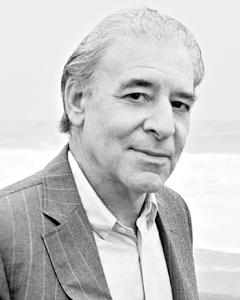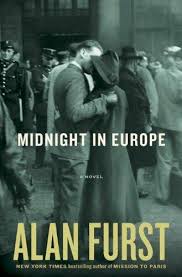Judging by his latest offering, one can appreciate why Furst has a considerable following. The plot, based on true events, is plausible. The mood is palpable. The settings are diverse. The dialogue crackles. The characters, a mix of the bland and the exotic, seem real. And most important, Furst is a fine writer, lining up all the elements in an alluring package.

Midnight in Paris unfolds over a period of a year. starting at the end of 1937, and takes us to a host of locales, most notably New York City, Paris, Madrid and Istanbul.
World War II is still about two years away, but the atmosphere is grim throughout Europe. A civil war is raging in Spain, pitting the democratic Spanish republic against the fascist-backed nationalist forces of Francisco Franco. Poland, hemmed in by Nazi Germany and the Soviet Union, is gripped by dread. Britain and France fear that a terrible bloodbath is on the horizon.
Furst evokes this brooding sense of menace with a few spare but telling words. He’s a master of economy, eschewing verbosity.
The main character, Cristian Ferrar, 40, is a suave Spaniard from Catalonia, a high-powered lawyer who works for an international law firm. He leans toward the republic, but gets caught up in its cause after being approached by the Spanish embassy. Although he knows nothing about the global arms trade, he joins a clandestine Spanish agency responsible for acquiring weapons and munitions for the struggling republic. A quick study, he learns the intricacies of this nether world expeditiously.
Furst serves up a variegated cast of characters — Max de Lyon, a Polish-Jewish arms merchant hunted by the Gestapo and despised by antisemitic Poles; the Marquesa Maria Cristina, a Spanish aristocrat who claims she’s on the same side as Ferrar; Eileen Moore, Ferrar’s red-headed lover in New York City, and Stavros, a rough-and-tumble Macedonian who can help him complete his mission successfully.
The novel brims with intrigue, shady dealings and sexual tension, and takes us back to a time when Europe teetered on the precipice of disaster.
I look forward to Furst’s next novel.
